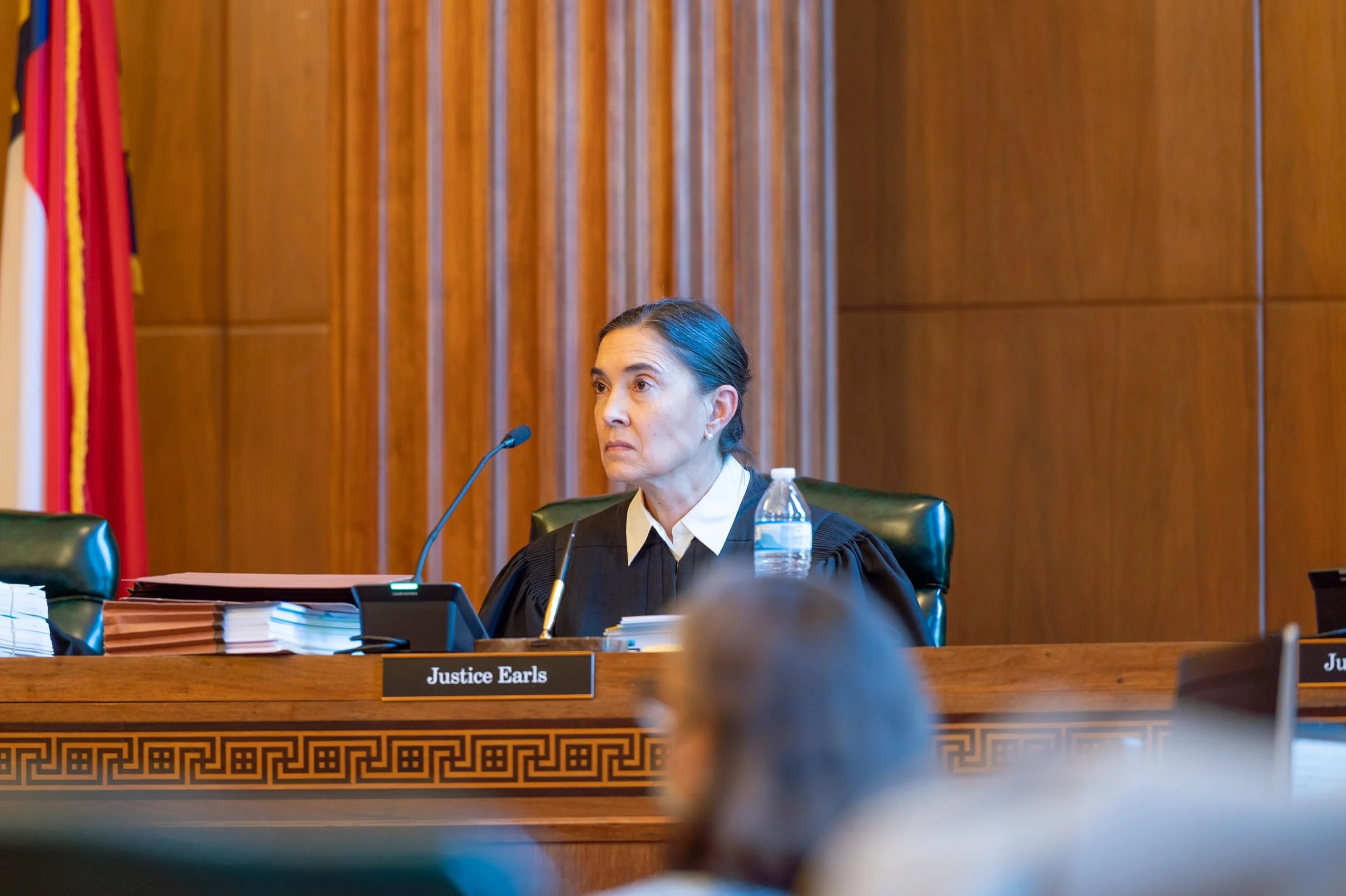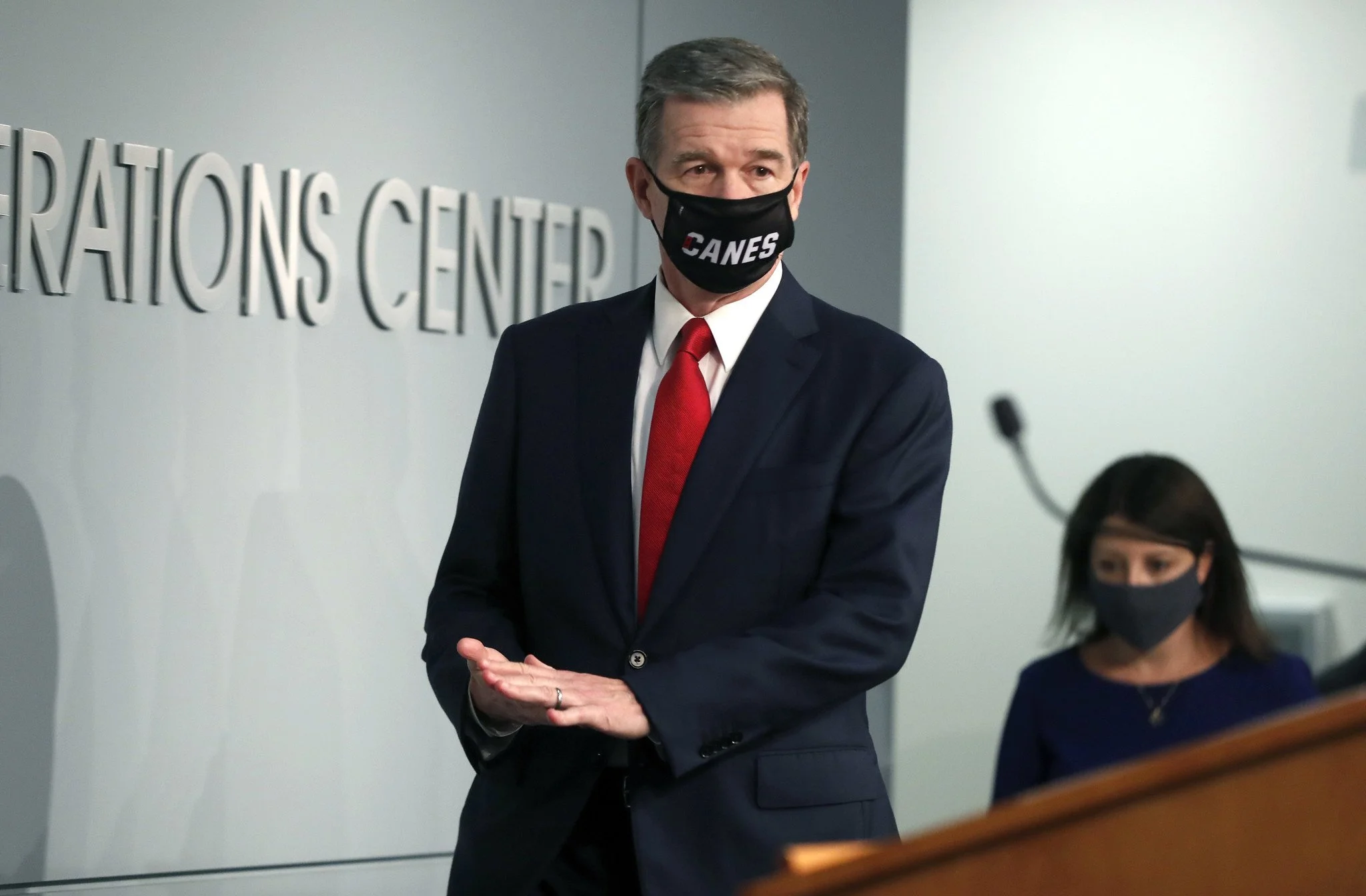NAACP defends Earls, repeats call for disqualification rules in latest Supreme Court filing
By Mitch Kokai, Carolina Journal
Lawyers representing the state NAACP defend N.C. Supreme Court Justice Anita Earls in their latest filing at the state's high court. At the same time, the civil rights group repeats its call for clear standards that could lead to Republican justices' removal from a high-profile case.
"The simple truth is Defendants have yet to identify any objective, reasonable grounds that would merit disqualification of Justice Earls under the North Carolina Code of Judicial Conduct," writes Kimberley Hunter of the Southern Environmental Law Center.
Hunter represents the state NAACP in a high-profile case, NAACP v. Moore. The suit challenges two 2018 state constitutional amendments. One guarantees voter ID. The other lowers the state's cap on income tax rates.
"Despite Defendants’ implications to the contrary, Justice Earls was not involved in the case that is now before this Court," Hunter writes. "Nor did she ever represent NC NAACP in this case or in the prior Covington [redistricting] litigation. The fact that related legal issues were raised in a case where Justice Earls was counsel does not require her recusal."
While defending Earls, Hunter also repeats her argument for the state Supreme Court to adopt standards for forced removal of justices. That standard could apply to cases like NAACP v. Moore.
"[T]he NC NAACP requested that the Court adopt clear, consistent standards for disqualification," Hunter writes. "Defendants’ late-arriving motion requesting 'in the alternative' that Justice Earls be disqualified in this case further cements the need for such rules and procedures. Litigants should have a clear process they can follow when they think disqualification is appropriate, and clear timelines to adhere to so that disqualification motions are not filed — as this one was — in a way that disrupts the orderly progress of the litigation."
Hunter's court filing marks the latest development in a case Carolina Journal has monitored closely at ExtremeInjustice.com.
This document arrives three weeks after legislative defendants in NAACP v. Moore filed a motion raising the prospect of removing Earls from the case. While legislative leaders are not pushing for Earls' forced removal, they urge the court to consider that option if it moves forward with the NAACP's earlier proposal to remove two other justices. Earls is a Democrat. The NAACP wants the court to remove Republican Justices Tamara Barringer and Phil Berger Jr.
The defendants' Nov. 24 motion regarding Earls described her removal from the case as "alternative relief."
“[I]f this Court determines it has the need and authority to take the unprecedented step of deciding involuntary recusal of justices, … then this Court should examine the impartiality of Justice Earls and disqualify her from consideration of this matter,” read the motion from the legislative leaders' attorney, Martin Warf.
The motion explains that Earls, before joining the Supreme Court, represented the plaintiffs in another lawsuit, Covington v. North Carolina, “that is at the root of this case,” Warf writes. In her role representing the NAACP, Earls labeled the General Assembly “usurpers.” That’s the same argument plaintiffs in the current case are using to block state constitutional amendments for voter ID and lowering a state income tax cap.
“Plaintiff argues that this case is a matter of an unfinished remedy,” Warf writes. “Plaintiff now seeks the perceived state court remedy of voiding the work of the Legislature that remained in place following the federal court’s decision. … It is a state court argument rooted in Covington, nurtured by Justice Earls in federal court and the trial court below, that Plaintiff hopes bears fruit with this Court.”
Legislative defendants have legitimate reasons to believe that Earls considers the General Assembly “usurpers,” Warf explained. “When Justice Earls argued in Covington that, based on redistricting violations, the members of the General Assembly became usurpers and their acts were void, ‘a perception could be created in the mind of a reasonable person’ that Justice Earls holds that to be true ‘and that it would be difficult for the defendants to receive a fair and impartial [review] before [Justice Earls].’”
“The authority of the General Assembly is the crux of this case — authority that Justice Earls has already argued was lacking,” Warf writes.
Hunter argues on behalf of the NAACP that Earls should have a chance to defend herself. "If the Court accepts this late motion, the full Court should review the Legislative Defendants’ arguments in support of disqualification, just as they should with Justices Berger and Barringer," Hunter writes. "Justice Earls should be able to offer any additional factual evidence necessary to counter the unsupported claims. After review, it will be clear that disqualification of Justice Earls would be unnecessary and improper."
"This Court should adopt clear, consistent procedures to assess disqualification," Hunter adds. "Where disqualification is of concern, parties should be able to offer arguments in briefing, and the challenged justice should be able to offer relevant facts. The Court should then rule on the motion for disqualification and make its reasoning public."
Barring any additional unforeseen motions, Hunter's defense of Earls is the last expected court filing in NAACP v. Moore on the issue of forced removal of justices.
It's not clear when the Supreme Court will address that issue. Justices must address competing arguments over forced removal before addressing the merits of the case. The case itself will determine whether the voter ID and tax cap amendments remain in the N.C. Constitution.



